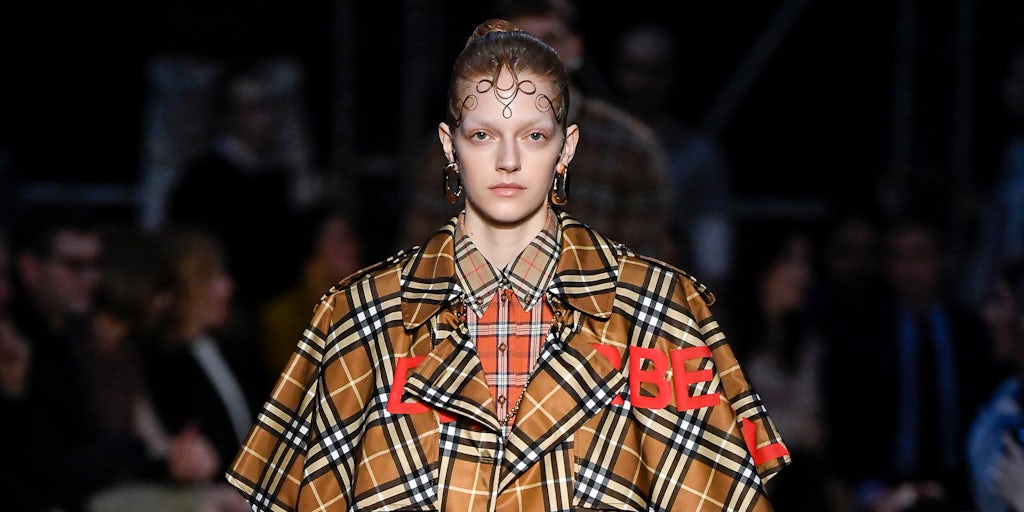
ATHENS, Greece — Burberry Group PLC is the largest luxury brand yet to explore new ways to tap into the fast-growing resale market, partnering with The RealReal, Inc. to offer special perks that would entice resellers back into its stores.
On Monday, the British brand announced a pilot programme offering people who sell Burberry pieces on The RealReal an exclusive personal shopping experience at select US stores.
The move bolsters The RealReal’s position in a competitive market, and marks the latest step by the luxury sector to slowly embrace resale.
The upper echelons of the fashion industry have been wary of the space, fearing that encouraging customers to shop used will hurt sales of new products and tarnish their brand. In November 2018, Chanel filed a lawsuit against The RealReal, accusing it of being unable to guarantee authenticity, a charge the reseller denies.
But with signs of economic headwinds mounting in the US, Europe and Asia, and a tentative embrace of newer digital business models beginning to permeate the luxury sector, more high-end brands are eyeing ways to tap into the sizeable, and rapidly expanding secondary market.
In May, luxury e-commerce platform Farfetch Limited said it was launching a resale programme for handbags. In July, American handbag brand Mark Cross announced plans to launch its own scheme, becoming one of the first luxury labels to offer second-hand products directly to consumers.
More high-end brands are eyeing ways to tap into the sizeable, and rapidly expanding secondary market.
Analytics firm GlobalData predicts the resale category will grow to $51 billion in 2023 from $24 billion last year. No longer confined to thrift stores, second-hand fashion is now outstripping growth in the primary luxury goods sector. When The RealReal went public in June, its shares priced above its target range, valuing the company at $1.6 billion, though they’ve edged lower since.
At the same time, companies see resale as an opportunity to bolster their sustainability credentials at a time when consumers are increasingly attuned to the negative environmental impact of the fashion industry. Keeping clothes in circulation for longer through resale is one way to help reduce the huge amount of waste currently generated by the sector.
The RealReal offers a sustainability calculator that allows consignors to calculate the emissions and water saved by keeping clothes and accessories in circulation. In a nod to growing consumer demand for such information, the company is expanding the number of products covered by the calculator this week, and making it visible to buyers as well as sellers.
Resale platforms have also been courting luxury brands as they jostle for dominance in an increasingly competitive market. Uptake has been slow. Stella McCartney has had a partnership with The RealReal since 2017, but it’s taken until now for others to start to follow suit.
No longer confined to thrift stores, second-hand fashion is now outstripping growth in the primary luxury goods sector.
Burberry’s decision to experiment with The RealReal comes amid signs that appetite for the brand on the secondary market is heating up. Resale demand for the British label grew 64 percent year-on-year, driven by demand for the brand’s sneakers, outerwear, backpacks and hats among Millennial and Gen Z consumers, according to data from The RealReal.
Second-hand platforms make their money by taking a cut of an item’s resale price. The original retailer doesn’t see any profit or any of the valuable sales data. Partnerships like the one Burberry is piloting with The RealReal offer a tantalising opportunity to coax consignors back into stores to spend the cash they generate through selling old items from the brand.
It riffs on the model Stella McCartney has had in place for several years, offering consignors a $100 voucher for the brand when they resell one of its items on The RealReal. In the first year of that relationship, consignors of Stella McCartney items increased by 65 percent, The RealReal said.
Related Articles:
Inside The RealReal's Plan to Dominate the Second-Hand Luxury Market
Startups
via https://aiupnow.com
Sarah Kent, Khareem Sudlow
